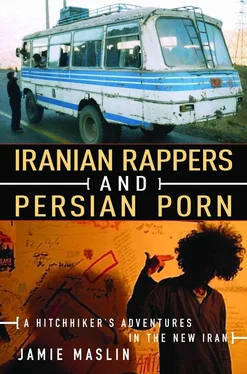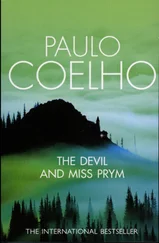We stopped in Dogubayazit at a café for lunch, which included meat of uncertain origin, tomatoes, bread, and olives. We were less than thirty minutes from the border, and it was now that I looked properly at my Lonely Planet guidebook for the very first time. For sure, I’d browsed the pictures before, but I felt planning anything before I arrived in Iran and got a feel for the place was premature. As I began to skim the pages, however, I wished I’d read more before I’d got so close to the border.
Of particular concern was a section about changing money, and its advice not to do so at Bazargan just inside the Iranian border, which was exactly where I had planned to do it, as it would be my first stop in Iran. Apparently, foreigners received extreme hassle from the crafty money changers there and were often ripped off in the process. I didn’t like the sound of this.
In the money changer’s favor I now learnt, was the confusion between the rials written on Iranian bank notes and the tomans commonly referred to by the locals. Since one toman equates to ten rials, this quirky local practice is the equivalent of American shopkeepers asking for ten cents when they really require a dollar. To confuse matters further, the shopkeepers at the bazaars will, on occasion, ask for one toman when they actually mean one hundred rials, or even a thousand.
According to my guidebook, the money changers were perfectly aware of this confusion and did their best to exploit it with foreigners, whilst stirring in random references to the dollar just to muddy the waters further. I didn’t plan to change a penny in Bazargan now. I mimed to Kerim and the other guys at the café, all of whom he seemed to know, that I needed to exchange some money before I arrived in Iran.
These kindly chaps explained, via a man from the shop next door who spoke a little English, that they would be more than happy to help me out and personally exchange my U.S. dollars, for what they assured me was a better than average rate. I politely declined. After further discussions and negotiations, one of them agreed, for a small fee, to take me to a proper money changer not far away in the center of town. I jumped into his car, leaving Kerim and my backpack behind in the truck, and went through the crowded twisting streets to a small currency exchange shop. I only wanted to exchange enough for the next few days until I managed to locate a proper bank inside Iran. I swapped the Turkish lira equivalent of about sixty dollars, and in return received a huge wad of green Iranian currency graced with the image of the Ayatollah Khomeini. As soon as I returned to the café, we set off for Iran.
The queue of trucks stretched for a hell of a long distance from the border, which is considered to be one of the most congested bottlenecks in West Asia. The thought of waiting in the truck for hours didn’t appeal, so I thanked Kerim for the ride and headed off on foot toward Iran.
* * *
I approached the border with some trepidation. Thoughts of the gruesome documentary I’d seen before leaving and of the chaos in nearby Iraq filled my mind, and I wondered what sort of reception I, as a Westerner, would get in the Islamic Republic of Iran. Britain had meddled often with the country’s internal affairs, so would the Iranian people be cold or even hostile? I thought back on my encounter with Saddam, which, along with last night’s canine-interrupted sleeping arrangements, I could well have done without. I hoped there wouldn’t be any similar close shaves awaiting me in Iran.
The initial reception, it turned out, couldn’t have been nicer. I was directed by friendly, smiling officials to one of two border queues situated inside an airport-style customs building. In here, I saw for the first time a picture I would see again and again during my Iranian tour: a portrait of Iran’s late supreme religious leader, Ayatollah Khomeini. Alongside this was a picture of the current religious leader, Ayatollah Ali Khamenei. There was also a sign for a prayer room and one for a human quarantine area. On seeing these pictures and signs, I felt a quiet sense of achievement at having made it this far and having finally reached my elusive destination. The nervousness I’d experienced moments ago evaporated and was replaced with an intense excitement.
I joined the back of a large line leading to a couple of kiosks where it appeared that passports and visas were being checked and stamped. Just beyond this was a larger area where a group of people were busy arranging their luggage in readiness for joining another queue, at the end of which luggage was being presented for inspection at a customs desk. After less than a minute lined up behind the locals, I was spotted by an official who immediately approached me. My previous apprehension returned when I was then asked for my passport and told simply, “Follow me.” I was paranoid at having been singled out and was half-expecting a thorough interrogation, followed by an invasive full cavity search, topped off with a spell in “human quarantine.”
Instead the official brought me to the front of the line, handed his colleague my passport, and said happily, even excitedly, “Tourist!” His colleague smiled back, stamping my passport in the process, and said in a similar manner, “Welcome to Iran!”
I was now led through the crowd of locals rearranging their luggage. This proved difficult as my tent protruded significantly sideways from my backpack, making it impossible to get past without bumping into people. I apologized profusely and tried to maneuver as carefully through the crowds as possible, but the friendly official couldn’t be bothered with any of this cautious nonsense and pushed me from behind shouting “Tourist! Tourist!” in an attempt to clear the crowds.
A generously proportioned Iranian woman in traditional full black chador stood blocking my way. I hunched my shoulders and turned to squeeze respectfully past her, but just as I was about to negotiate this move, the official gave another helpful shove and I hurtled toward her. It was like the second before being in a car crash where paradoxically everything slows down and yet speeds up all at once. I panicked and instinctively tried to stop the collision by throwing out my hands—which collided with her ample hindquarters. My palms sunk in, giving me a big fat fistful of Iranian ghetto booty, and sending her forward with a surprised and startled jolt.
She spun around in disgust and reprimanded me, saying goodness knows what in Farsi. She didn’t look too happy and neither was I. It was hardly in keeping with the delicate etiquette surrounding the treatment of women in an Islamic state of which I was well aware.
“I’m awfully sorry,” I tried to explain as best I could using hand gestures but the official continued pushing and before I knew it we’d cleared the crowd. Now in the main hall, I made a move to join the back of the “customs” line, but the official shook his head and with a smile whisked me to the front of this also. Luckily, this time I went around it rather than through it. The customs guy checking bags was already dealing with someone when we approached, but his colleague pushed me in front of him announcing proudly, “Tourist!”
Now ignoring the local himself, the customs guy gave me a warm smile and said, “Ah, tourist!” I lifted my bag up for inspection but he just smiled again and waved me through.
That was it—I’d cleared the border.
Weren’t customs officials meant to be officious bureaucrats, never happier than when exercising their little bit of power? I’d expected nothing less in Iran; I’d imagined they’d be worse than the ones at home and would make British or American officials seem almost cheery and lenient by comparison, but in fact, the opposite was true. I was completely stunned, and didn’t quite know what to do next.
Читать дальше












